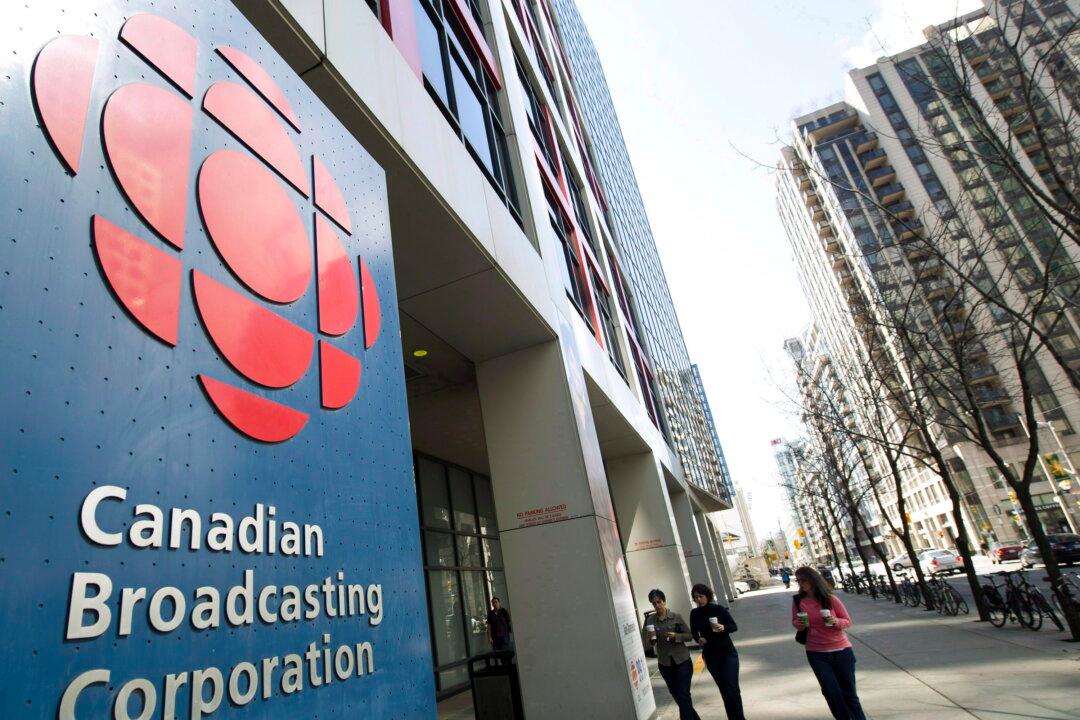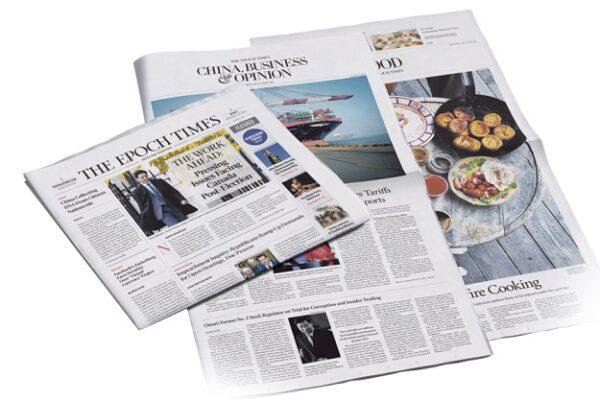There are many ways in which Canada’s national broadcaster failed its own stated standards of journalism in its recent reporting about The Epoch Times.
Gu also said the CBC’s conspiracy theory claim is based on unsubstantiated comments from one recipient and an unnamed mail carrier, falsely claiming that the special edition says the virus was “manufactured” and that it’s “part of a bio-warfare agenda by the Chinese people,” while it makes no such allegations.
The CBC’s coverage drew rebuke from a number of journalists, and was the subject of a commentary published on the front page of the National Post on Sat., May 2.
The Twitter bios of two of the three CBC reporters covering Epoch Times’ special edition say their focus is disinformation on the COVID-19 pandemic. One holds the title of senior reporter.
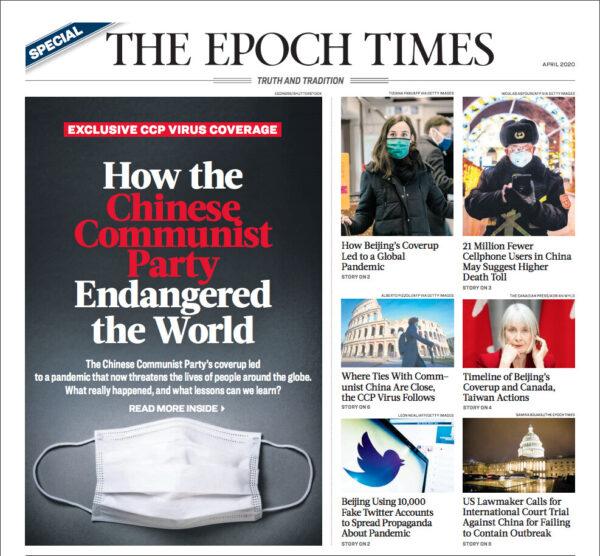
In targeting Epoch Times’ reporting and in their labelling, the reporters themselves unknowingly became part of a disinformation campaign—one perpetrated by Beijing to stifle any criticism and exposure of its conduct by characterizing it as racism.
In the case of the Chinese Communist Party (CCP), this strategy has its roots in propaganda and education initiatives launched as early as the 1990s in the aftermath of the Tiananmen Square massacre by then-leader Jiang Zemin. The goal was to drive home the point that the CCP and China are one and the same.
The Epoch Times, founded by Chinese immigrants who fled communist oppression in their homeland, has been covering disinformation put out by the Beijing regime for two decades. Since the start of the pandemic, using sources in China, The Epoch Times has been publishing exclusive reports on China’s disinformation and hiding of the facts.
Meanwhile, even before setting its sights on The Epoch Times, CBC has run stories that were shaped by the Chinese regime’s disinformation about the number of infections in China.
What the Special Edition Covers
The Epoch Times’ special edition is an eight-page broadsheet paper distributed to various neighbourhoods across Canada. According to publisher Gu, this was done because the paper considers “that information to be important to Canadians,” and is also part of “sampling” efforts to raise brand awareness and garner new subscribers.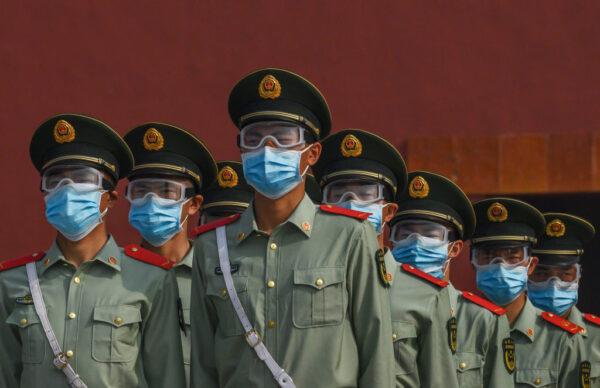
The cover page of the special edition is headlined, “How the Chinese Communist Party Endangered the World,” with a subheading that reads, “The Chinese Communist Party’s coverup led to a pandemic that now threatens the lives of people around the globe. What really happened, and what lessons can we learn?”
The topics included in the special edition are:
-An article on how Beijing’s coverup of the initial virus outbreak led to a global pandemic;
-An article examining the cancellation of 21 million cellphones in China and its connection with the real death toll due to the virus, as Beijing has not published factual infection and death rates;
-A timeline on key dates and actions showing how the Chinese regime prevented information about the virus outbreak from becoming public, including reprimanding whistleblowers, and key actions taken by Taiwanese and Canadian officials and the outcome of the scale of the pandemic in the two countries;
-An article examining the initial steps Canada took in the face of the outbreak with comments from a Canadian senator on how more prompt action could have reduced infection rates;
-An article on research work looking into how 10,000 fake Twitter accounts linked to Beijing are being used to spread disinformation about the origin of the virus outbreak;
-An article about action taken by U.S. lawmakers to hold Beijing to account for its role in covering up the outbreak;
-An article on how urn shipments to a funeral home in Wuhan indicate a death toll much higher than the one published by officials;
-One version of the special edition in early April included a commentary by an author quoting China’s former defence minister talking about the need for bioweapons. The author calls for an investigation into the origin of the virus;
CBC’s One-Sided Report
The CBC aired its radio segment on the special edition on the morning of April 29 and published its first online article at 4 a.m. the same day.The original headline of the article read: “‘Racist and inflammatory’: Canadians upset by Epoch Times claim China behind virus, made it as a bioweapon.”
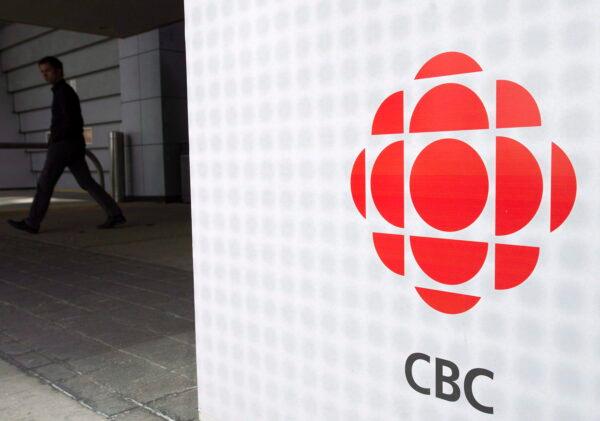
The opening paragraph says The Epoch Times is “coming under fire for advancing a conspiracy theory about the origin of the coronavirus,” but the article doesn’t provide any proof of this claim.
It also doesn’t provide any proof on how Canadians, or a majority of Canadians, feel about the special edition, as claimed by its headline.
Instead, it quotes a recipient in Kelowna who says, “It did seem to allude to conspiracy theories like, you know, maybe it was manufactured.”
“Is that one individual’s opinion the source of a headline speaking for all Canadians?” Gu said in her statement.
The article quotes an unnamed mail carrier who says he didn’t want to deliver the special edition to peoples’ homes and is quoted as saying the edition claims the virus is “part of a bio-warfare agenda by the Chinese people.” The special issue doesn’t make any such claim, however. The CBC reporters and editors again failed to examine and present any proof supporting such an allegation.
CBC then quotes a scientist saying there is high consensus that the virus is not “engineered.” Again, the special edition doesn’t make any claim that the virus was engineered.
The article doesn’t examine the contents of the special edition. The closest it gets is including a photo of the commentary article titled “China’s Bioweapon Ambitions.”
In the commentary, the author quotes a former Chinese defence minister talking about biological weapons. At the end, the commentary notes that Chinese authorities haven’t been transparent about the outbreak and says there should be an investigation.
“There must be an investigation of the outbreak in Wuhan,” the writer argues. “If Chinese officials are innocent, they have nothing to hide. If they are guilty, they will refuse to cooperate.”
On May 3, U.S. Secretary of State Mike Pompeo said there is “enormous evidence” that the virus outbreak originated in a Chinese lab.
Allegations of Racism
The CBC article quotes the recipient in Kelowna as saying the special edition “feels racist and inflammatory.” This is the basis for the headline of the story.Gu noted that the special edition’s focus is the communist regime ruling China, not the people of China. She also said The Epoch Times was founded by Chinese immigrants, and that many of the paper’s reporters and editors were arrested in China, jailed, and tortured. The CBC didn’t report these parts of Gu’s statement.
Not only does the CBC article say The Epoch Times is affiliated with “the Falun Gong movement” and repeat a slanderous term used by the Chinese regime against the spiritual practice, it also words its coverage of the persecution campaign against Falun Gong in China as “its followers say the Chinese government persecutes them.” In fact, the persecution has been well documented by rights groups, and many governments, including Canada’s, have condemned it.
CBC’s Journalistic Failures
The CBC’s standards of journalism state that it follows the principles of accuracy, fairness, balance, and impartiality.On accuracy, the standards say, “we invest our time and our skills to learn, understand and clearly explain the facts to our audience.”
In its reporting, the CBC demonstrated that it failed to understand the content of the special edition and instead presented viewpoints from two people as facts.
On fairness, CBC’s standards say, “We treat [individuals and organizations] even-handedly.” On balance, the standards say CBC is to reflect “a diversity of opinion,” and on “issues of controversy, we ensure that divergent views are reflected respectfully.” On impartiality, the standards say CBC is not to “promote any particular point of view on matters of public debate.”
However, the CBC’s reporting didn’t include any positive feedback on the special edition. It only reflected negative views and made conclusions based on the opinion of two people, a recipient and an unnamed mail carrier.
The statement also points out factual mistakes made by CBC, one being that The Epoch Times is found in street boxes in Canadian cities, while it has been a subscription-only paper since July. It also erroneously said Shen Yun Performing Arts is part of the Epoch Media Group.
The CBC chose to go ahead with airing TV segments on its report, despite the fact that Gu’s statement addressing some of the article’s many problems was already released.
In one TV segment, the anchor opens by saying, “The Epoch Times is publishing misleading information about the coronavirus.” In another segment, aired on the network’s flagship program The National, the anchor says, “The Epoch Times published a conspiracy theory about the origin of the coronavirus and China’s role.”
It then quotes a Canadian Union of Postal Workers (CUPW) representative saying the special edition’s front cover is “promoting xenophobia towards the Asian community,” and says he wants mail carriers to not have to deliver the special edition.
The CBC report doesn’t attempt to substantiate the claim that the special edition is “promoting xenophobia,” which can be done simply by pointing out what the front page states and evaluating it against the definition of xenophobia from any dictionary.
The report says the minister in charge of Canada Post, Anita Anand, rejected CUPW’s request, and said the special edition “does not appear to meet the required criteria of the offence of wilful promotion of hatred as established in the Criminal Code of Canada.”

The Criminal Code proscribes hatred directed toward “any identifiable group.”
The only identifiable group in the special edition is the Chinese Communist Party. Are the multiple CBC reporters credited with these reports, among them a senior reporter, and their editors not capable of making an assessment and analysis on whether there is any substantiation to claims that the special edition is promoting hatred toward the “Asian community”?
The TV segment notes that Epoch Times is founded by Falun Gong adherents, and quotes an academic saying “there is so much bad blood” between the Chinese regime and Falun Gong “that either side would take whatever opportunity they reasonably could to throw mud at the other.”
The “two sides” that the academic is referring to are on the one hand a totalitarian regime with all the institutions, the full force of the military, and financial assets of the country at its disposal, and on the other hand a group of people who practice meditation and who are being tortured and killed by the government that is supposed to serve them.
Is the academic declaring that the actions of the Beijing regime, well known for its egregious rights abuses that include torture and killing, as actions it can “reasonably” conduct? And is he equivalencing those actions with the actions taken by a persecuted group that follows an ancient practice based on the principles of truthfulness, compassion, and tolerance?
Changes to CBC Report
After The Epoch Times’ first statement, the CBC changed the factual mistake saying The Epoch Times newspaper is available for free and ran a “clarification” note at the end of the article explaining the change. It also removed the part where it erroneously stated that Shen Yun is a part of Epoch Media Group and ran a “correction” note about the mistake.However, at the time of this writing, a separate post containing a video segment of CBC’s report on their website still includes the factual mistake that the newspaper is available for free in street boxes.
In its first article, the CBC updated its headline three times, without running any notes about its correction:
CBC later added an editor’s note to its article that it has updated its headline and made other changes. The note reads in part “The earlier headline also incorrectly stated the Epoch Times claimed China made the virus as a bioweapon.” This was done following Epoch Times’ second statement.
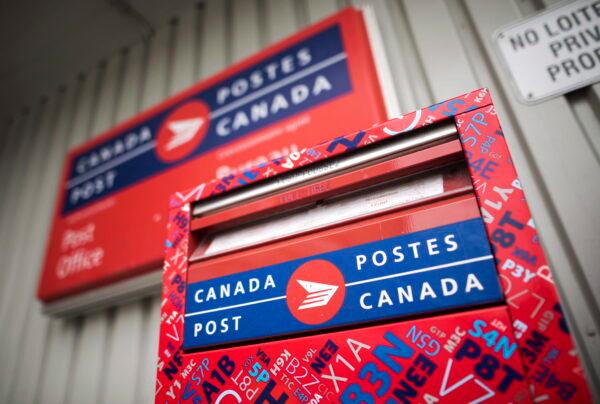
However, other issues Gu raised, such as false claims about the special edition alleging the virus as being “manufactured” or being “part of a bio-warfare agenda by the Chinese people” are still there.
CBC proceeded to publish another article on May 1, headlined “Federal government says Canada Post must deliver Epoch Times despite union objection.”
The article again only reflects views critical of the special edition and The Epoch Times, except those of the publisher, which consists of a small part of the CBC report. The article also again uses the slanderous term against Falun Gong, but unlike last time where it had said it’s the group that says it’s persecuted, the new report cites human rights groups on the persecution campaign.
There was no correction or clarification note run in the CBC’s original report about the fact that it’s not just the group that says it is persecuted.
Similar to the first article, the second also doesn’t pass muster when held up against CBC’s own journalistic standards, such as repeating a false accusation of “xenophobia” by the CUPW representative without presenting any evidence to that effect or examining and evaluating the allegations.
The report also fails in its identification of stakeholders and relevant expert commentary.
The CBC report didn’t include any voices from civil society groups or experts on the dangerous precedent it would set if the union was allowed to decide what gets delivered by Canada Post and what doesn’t.
